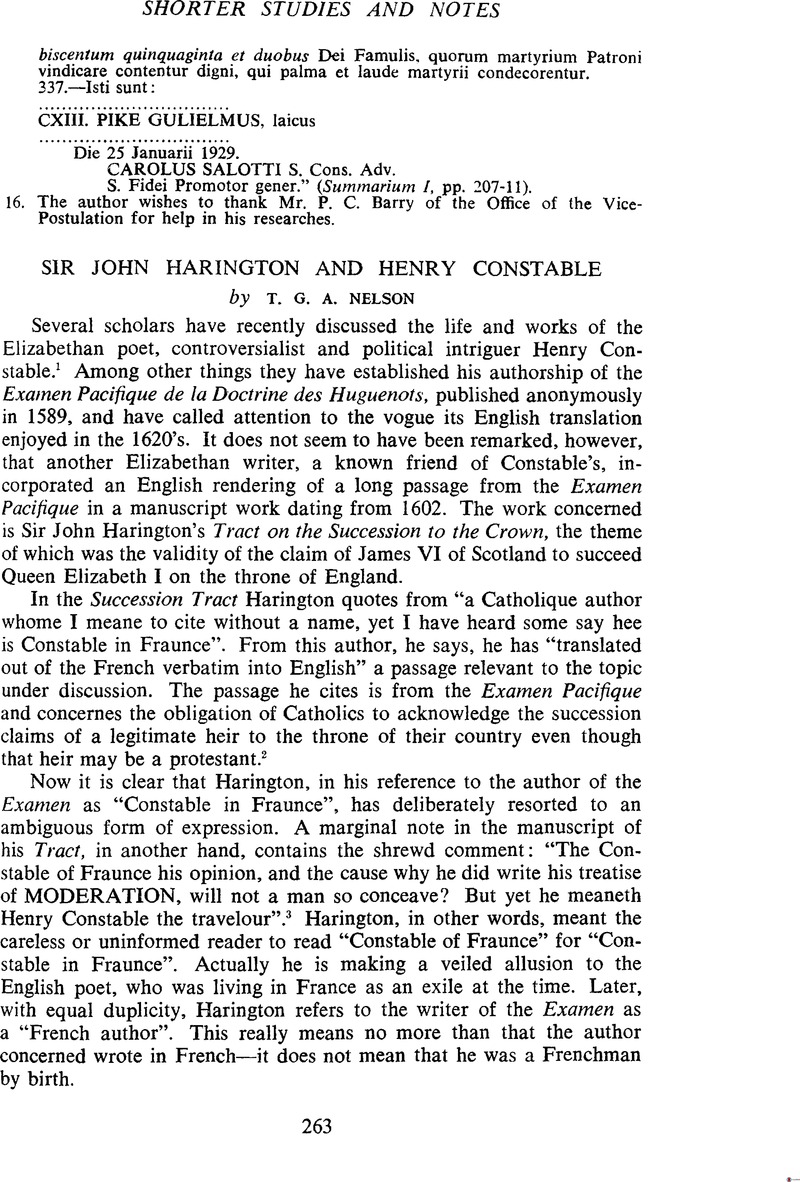No CrossRef data available.
Published online by Cambridge University Press: 16 September 2015

1. George, Wickes, “Henry Constable, Poet and Courtier,” Biographical Studies, vol. 2 (1954), pp. 272–300;Google Scholar Joan Grundy, introduction to The Poems of Henry Constable (Liverpool University Press, 1960);Google Scholar David, Rogers, “The Catholic Moderator,” Recusant History, vol. 5 (1960), pp. 224–235;Google Scholar John, Bossy, “A Propos of Henry Constable”, Recusant History, vol. 6 (1962), pp. 228–237.Google Scholar
2. See Harington, A Tract on the Succession to the Crown (1602), ed. Clements R. Markham (Roxburghe Club, 1880). The extract translated from Constable appears on pp. 65-70.
3. Tract, p. 64. The editor identifies the annotator as Archbishop Mathew, the owner of the manuscript and a friend of Harington's.
4. In his Orlando Furioso (London, 1591), p. 288 he refers to Constable as his “very good friend.” He possessed transcripts, which Constable's modern editor finds reliable, of several of Constable's poems: copies of two sonnets transcribed by Harington himself have survived. See Grundy, op. cit., pp. 85 ff.,Google Scholar and Ruth, Hughey, The Arundel Harington Manuscript of Tudor Poetry (Columbus, Ohio, 1960), vol. II, pp. 327–349.Google Scholar Harington must have been close to Constable in the years preceding the latter's exile.
5. Tract, p. 64.
6. Grundy, op. cit., pp. 28 ff.
7. Tract, pp. 3, 108; An Apologie, in A New Discourse … Called The Metamorphosis of Ajax, ed. Donno, E. S. (London, 1962): see p. 263.Google Scholar
8. Apologie, ed. cit., pp. 261-2.